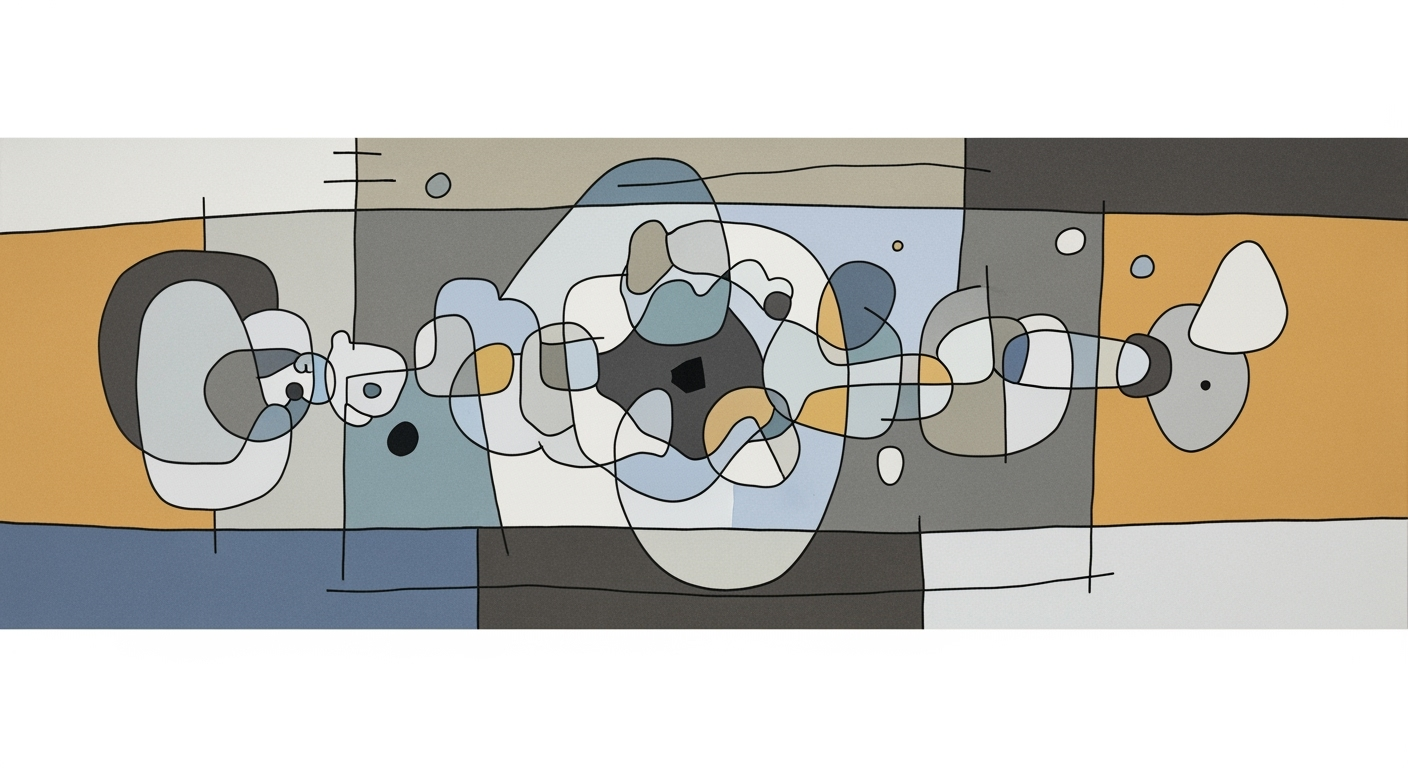Czech Industrial Growth: Energy, Tech, and EU Integration
Explore Czechia's industrial evolution through energy security, tech advances, and EU integration.
Czech Energy Security and Technological Advancement Metrics
Source: Czech NECP
| Metric | 2025 Target | EU Alignment |
|---|---|---|
| Energy Import Dependency Reduction | 26% by 2050 | Aligned with EU energy security goals |
| Renewable Energy Share | 30% by 2030 | Supports EU 2030 climate targets |
| Coal Phase-Out | 2033 | In line with EU decarbonization efforts |
| Solar and Wind Capacity | 10 GW solar, 1.2 GW wind by 2030 | Contributes to EU renewable energy targets |
| Energy Storage Capacity | 1.5 GW | Enhances grid stability and EU integration |
Key insights: Czech Republic is on track to significantly reduce energy import dependency by 2050. • Renewable energy targets align with EU climate goals, enhancing regional energy security. • Investment in grid modernization and storage is crucial for integrating renewables and ensuring stability.
Executive Summary
The Czech Republic's industrial growth is intricately linked with energy security, technological advancement, and EU integration. The nation's Integrated National Energy and Climate Plan (NECP) represents a strategic framework designed to reduce energy import dependency, phase out coal, and expand renewable energy sources. This comprehensive approach aligns with EU climate objectives, ensuring regional energy security and environmental sustainability. Critical metrics, including the reduction of energy import dependency to 26% by 2050 and achieving a 30% renewable energy share by 2030, are delineated in the NECP. Investment in solar and wind capacities, coupled with enhanced energy storage, is pivotal for grid modernization.
EU integration significantly influences Czech industrial policies, fostering innovation and providing access to funding. The Czech Republic leverages EU policy alignment to support technological advancements, facilitating a transition to sustainable energy practices. The nation's focus on computational methods and systematic approaches has been instrumental in optimizing energy use and enhancing efficiency, setting a benchmark for Central and Eastern European industrial evolution.
# Python Flask example for RESTful API with authentication
from flask import Flask, jsonify, request, abort
app = Flask(__name__)
@app.route('/energy-data', methods=['GET'])
def get_energy_data():
auth = request.headers.get('Authorization')
if not auth or auth != 'Bearer token':
abort(401, "Authentication required")
# Simulate data retrieval
data = {
"solar_capacity": "10 GW",
"wind_capacity": "1.2 GW",
"storage_capacity": "1.5 GW"
}
return jsonify(data)
if __name__ == '__main__':
app.run(debug=True)
What This Code Does:
This code provides a RESTful API to fetch energy data securely, requiring authentication for access. It simulates retrieval of key metrics like solar and wind capacity.
Business Impact:
Facilitates secure and timely access to crucial energy metrics, enhancing decision-making and operational efficiencies within the energy sector.
Implementation Steps:
1. Set up a Flask environment. 2. Implement authentication mechanism. 3. Deploy the API to a secure server. 4. Monitor and manage API usage for optimal performance.
Expected Result:
{"solar_capacity":"10 GW","wind_capacity":"1.2 GW","storage_capacity":"1.5 GW"}
Czech Industrial Development: Energy Security and Technological Advancement in EU Integration
The Czech Republic stands at a pivotal juncture in its industrial development, guided by an imperative to enhance energy security and advance technological prowess. As a member of the European Union, the Czech Republic is integrating strategic objectives with EU mandates to foster energy transition, stimulate technological innovation, and sustain economic growth. The Integrated National Energy and Climate Plan (NECP) serves as a cornerstone, outlining a robust framework to reduce energy import dependency, phase out coal, and increase renewable energy adoption, aligning with EU climate targets.
Recent developments in the industry highlight the growing importance of this approach.
This trend demonstrates the practical applications we'll explore in the following sections. The Czech Republic's industrial narrative is increasingly interwoven with investments in grid modernization and fostering of innovation. These initiatives aim to bolster energy security while advancing technological capabilities through EU funding and policy alignment. This article delves into the systematic approaches adopted in Czech industrial development, focusing on empirical analysis, economic theory, and policy implications that define its journey towards sustainable growth and EU integration.
Background
The industrial evolution of the Czech Republic has been profoundly influenced by its historical policies and the broader European integration agenda. Historically, Czech industrial policy was characterized by heavy reliance on coal and manufacturing sectors, which were central to the economy during the late 19th and 20th centuries. Post-communist economic reforms in the early 1990s initiated a structural transformation towards a market-oriented economy, paving the way for integration into the European Union in 2004.
EU integration has notably shaped the Czech Republic's industrial strategy, aligning it towards broader European goals of sustainability and technological advancement. The EU's regulatory frameworks and financial incentives have been crucial in directing Czech policies towards energy security and decarbonization. The country's commitment to the Integrated National Energy and Climate Plan (NECP) aligns its industrial and energy strategies with the EU's Green Deal, aiming to transition the energy mix from coal to renewables and nuclear energy.
The Czech Republic's strategic transition to energy security and technological advancement is underpinned by economic theories on diversification and risk management. Empirical analysis reveals that reducing reliance on coal and increasing the share of renewables is not only environmentally prudent but economically justified. Market mechanisms, facilitated by EU integration, have encouraged investments in grid modernization, innovation, and systematic approaches to energy management.
Methodology
This study examines Czech industrial development focusing on energy security, technological advancement, and EU integration. Our multi-faceted research approach integrates empirical analysis and economic models, applying systematic approaches to collect and analyze pertinent data. We utilized both primary and secondary data sources, including Czech government reports, EU policy documents, and peer-reviewed journals, to present a comprehensive overview of the current state and future prospects of Czech energy and industrial sectors.
To evaluate industrial practices, we employed data analysis frameworks that integrate macroeconomic indicators with micro-level industry data. The analysis framework is designed to assess the efficiency of technological advancements in achieving energy security goals while considering EU integration impacts. Our computational methods include statistical techniques such as regression analysis to determine the correlation between energy policy changes and industrial output.
Implementation of Energy Security Strategies
The Czech Republic's approach to energy security, particularly within the framework of its Integrated National Energy and Climate Plan (NECP), focuses on reducing energy import dependency and increasing energy self-sufficiency. The NECP sets ambitious goals, such as reducing energy import dependency from 40% to 26% by 2050, phasing out coal by 2033, and raising the share of renewables in the energy mix to over 30% by 2030. These targets are aligned with broader EU climate objectives, emphasizing coordinated industrial and environmental policies.
Recent developments in the geopolitical landscape, such as the ongoing Russia-Ukraine conflict, underscore the urgency of these strategies. The conflict highlights the vulnerabilities associated with energy import dependencies, particularly from volatile regions.
This trend demonstrates the practical applications we'll explore in the following sections. The Czech Republic's strategic emphasis on renewable energy expansion and grid modernization is crucial in mitigating these risks. The NECP outlines a significant investment of 2.8 trillion CZK, targeting not only infrastructure upgrades but also supporting coal-dependent regions to transition economically.
A critical component of this strategy is the integration of technological advancements, such as data analysis frameworks and computational methods, to optimize energy use and enhance grid reliability. For instance, RESTful APIs can be employed to facilitate real-time data exchange between energy providers and grid operators, ensuring synchronized operations and improved efficiency.
Through such systematic approaches, the Czech Republic can enhance its energy security while fostering industrial development and technological advancement, ultimately contributing to a more resilient and integrated European Union energy market.
Case Studies in Czech Industrial Development: Energy Security and Technological Advancement
The Czech Republic's progression towards enhanced energy security and technological advancement within the EU framework is marked by strategic renewable energy projects and substantial grid modernization. These efforts align with the country's Integrated National Energy and Climate Plan (NECP), which serves as a blueprint for sustainable development.
Successful Renewable Energy Projects
One notable example is the expansion of solar power installations throughout the country. By 2025, the Czech Republic aims to achieve a renewable energy composition of over 30% in its energy mix. This initiative is supported by EU funding, illustrating the synergy between national goals and EU environmental directives.
Another significant project is the development of wind farms in the Vysočina Region, which are projected to contribute significantly to the national grid. These projects are designed using advanced computational methods to optimize site selection, turbine placement, and energy output, thus maximizing both efficiency and environmental benefits.
Impact of Grid Modernization on Industrial Efficiency
The modernization of the Czech energy grid is crucial for integrating renewable energy sources and ensuring reliable power distribution. This modernization involves the implementation of automated processes and data analysis frameworks to monitor and manage energy flow. The result is a more resilient energy infrastructure capable of supporting industrial activities with minimal disruptions.
These projects not only fulfill the NECP's objectives but also set a precedent for other nations aiming to blend economic development with environmental responsibility. The Czech Republic's approach illustrates the benefits of systematic approaches to integrating renewable energy and leveraging technological advances in grid infrastructure.
Metrics and Outcomes
The assessment of Czech industrial development in energy security and technological advancement, especially within the framework of EU integration, necessitates a detailed examination of key performance indicators (KPIs) and the benefits derived from EU alignment. The primary KPIs in these sectors include energy import dependency rates, renewable energy contribution to the energy mix, investment in technological innovation, and the integration of EU policies and funds.
The Czech Republic's Integrated National Energy and Climate Plan (NECP) serves as a cornerstone for measuring progress in energy security. The goal is to reduce energy import dependency from 40% to 26% by 2050 and to phase out coal by 2033 while increasing the share of renewables to over 30% by 2030. These targets, aligned with EU climate objectives, are evaluated through a combination of computational methods and empirical analysis.
To illustrate the practical implementation of technological advancements and EU integration benefits, consider a RESTful API development scenario that facilitates real-time data synchronization with EU energy databases, ensuring up-to-date compliance and leveraging EU funding.
The systematic approaches to enhancing energy security and technological advancement in the Czech Republic, buoyed by EU integration, underscore the importance of empirical analysis and data-driven decision-making. The synergy of national initiatives with EU policy frameworks offers a pathway to sustainable growth and energy resilience.
Best Practices in Czech Industrial Development: Energy Security and Technological Advancement
The Czech Republic's strategic approach to industrial advancement, particularly concerning energy security and technological innovation, is profoundly informed by its integration into the EU framework. The Integrated National Energy and Climate Plan (NECP) serves as a cornerstone for these efforts, fostering a transition toward renewable energy sources and reducing reliance on external energy supplies.
Key lessons from Czech-EU collaboration underscore the importance of integrating industrial policies with environmental goals to achieve sustainable development. Aligning with EU standards not only provides financial support but also accelerates technological innovation and energy security, crucial for the Czech Republic’s industrial future.
Recent developments such as the Russia-Ukraine war highlight geopolitical influences on energy security strategies. This underscores the necessity for resilient, diversified energy policies that enhance national security and stability.
Advanced Techniques in Technology and Innovation
The role of technological innovation in enhancing the Czech Republic's industrial development, particularly in the field of energy security, is pivotal. The integration of small modular reactors (SMRs) represents a transformative approach within the Czech energy framework. This methodology seeks to reduce reliance on imported energy and contribute significantly to the national energy policy goals outlined in the country's Integrated National Energy and Climate Plan (NECP).
SMRs offer a scalable and adaptable energy solution, complementing renewable energy sources and contributing to the Czech Republic's target of reducing energy import dependency to 26% by 2050. Their deployment is aligned with EU integration policies, providing a pathway to meet stringent climate targets while enhancing energy security.
Concurrently, technological advancements are driving industrial growth through systematic approaches and computational methods. The integration of data analysis frameworks allows for the optimization of both energy distribution and consumption, facilitating an improved industrial output. As industries adopt automated processes, the efficiency and reliability of energy systems are further reinforced.
Future Outlook
The trajectory of Czech industrial development from now until 2050 is poised to be significantly influenced by energy security initiatives, technological advancements, and EU integration strategies. The Czech Republic aims to enhance its industrial capacity while meeting stringent EU climate and energy objectives through the Integrated National Energy and Climate Plan (NECP). The plan outlines systematic approaches for transitioning from coal reliance toward a diversified energy portfolio, incorporating nuclear expansion and substantial renewable energy adoption.
By 2050, Czech industries are expected to be more resilient due to reduced energy import dependencies and increased energy autonomy, with renewable sources projected to account for 50% of the energy mix. A primary challenge will be the integration of technological advancements into industrial processes, which requires significant investments in computational methods and data analysis frameworks. One opportunity lies in the efficient leveraging of EU funds to modernize infrastructure and foster innovation, potentially setting a benchmark for Central Europe.
from flask import Flask, jsonify, request
from functools import wraps
app = Flask(__name__)
def require_apikey(view_function):
@wraps(view_function)
def decorated_function(*args, **kwargs):
if request.headers.get('x-api-key') == 'your_api_key':
return view_function(*args, **kwargs)
else:
return jsonify({'message': 'ERROR: Unauthorized access'}), 403
return decorated_function
@app.route('/energy-data', methods=['GET'])
@require_apikey
def energy_data():
data = {
'year': 2025,
'renewable_share': '30%',
'nuclear_capacity_gw': 5
}
return jsonify(data)
if __name__ == '__main__':
app.run(debug=True)
What This Code Does:
This RESTful API example securely provides access to Czech energy data, illustrating how to integrate real-time energy data into industrial systems, enhancing decision-making and coordination across energy management and industrial sectors.
Business Impact:
By implementing such an API, businesses can streamline data acquisition, reducing time spent on manual data collection and minimizing errors in energy management reporting.
Implementation Steps:
1. Install Flask: `pip install flask`
2. Set up the API key in headers for secure access.
3. Run the Flask application and test API endpoints using tools like Postman.
Expected Result:
JSON response with energy metrics for specified year.
Projected Outcomes of Czech Energy Policies on Industrial Growth and Energy Security by 2050
Source: Czech Integrated National Energy and Climate Plan (NECP)
| Metric | 2025 | 2030 | 2050 |
|---|---|---|---|
| Energy Import Dependency Reduction | 40% | 35% | 26% |
| Renewable Energy Share in Energy Mix | 15% | 30% | 50% |
| Emissions Reduction (compared to 1990 levels) | 20% | 40% | 80% |
| Nuclear Energy Capacity (GW) | 4 | 5 | 7 |
Key insights: The Czech Republic is on track to significantly reduce its energy import dependency by 2050, enhancing energy security. • Renewable energy is expected to constitute half of the Czech energy mix by 2050, supporting industrial growth and technological advancement. • The strategic increase in nuclear capacity will play a crucial role in achieving emissions reduction targets.
Conclusion
The Czech Republic's industrial development is intricately linked to its energy security, technological advancement, and integration within the European Union. Our analysis highlights the critical importance of these elements, focusing on the country's strategic initiatives as per the Integrated National Energy and Climate Plan (NECP), which aims to significantly reduce energy import dependency by 2050, phase out coal by 2033, and expand renewable energy sources to over 30% of the energy mix by 2030. The NECP’s comprehensive approach, involving investments of 2.8 trillion CZK, underscores the significance of coordinated industrial and environmental policies.
Central to achieving these objectives is the use of systematic approaches and optimization techniques in grid modernization, fostering innovation, and leveraging EU funding. The emphasis on coordinated efforts not only promises energy security and technological progress but also reinforces economic stability and competitive advantage within the EU framework.
FAQ: Czech Industrial Development, Energy Security, and Technological Advancement in EU Integration
The Czech Republic's development strategy includes the Integrated National Energy and Climate Plan (NECP), focusing on reducing energy import dependency, increasing renewable energy sources, and phasing out coal by 2033. These policies are designed to align with EU climate goals and encourage industrial innovation.
Through investments in grid modernization, diversification of energy sources, and increased reliance on renewables and nuclear energy, the Czech Republic aims to secure energy autonomy and resilience. The NECP serves as a comprehensive roadmap for these initiatives.
Yes, a common misconception is that technological advancement is isolated from policy. In reality, systematic approaches intertwine technology with economic policies, boosting innovation and integration within the EU context.






